Israel, US Conclude Two-Week Joint Navy Drill
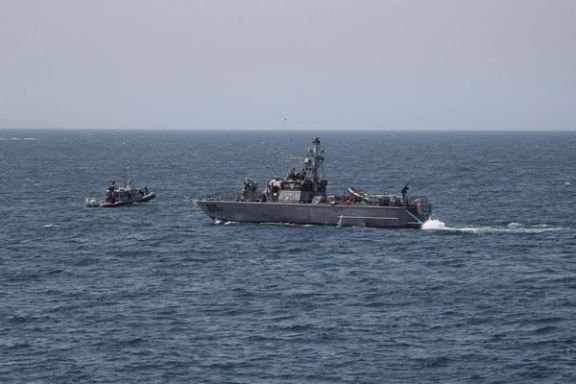
The Israeli and American naval forces have reinforced their military relationship through a two-week collaborative maritime exercise.

The Israeli and American naval forces have reinforced their military relationship through a two-week collaborative maritime exercise.
The exercise, codenamed Intrinsic Defender, took place off the coast of Haifa and marked the latest installment in a series of joint maneuvers between the Israeli Navy and the US 5th Fleet, which is stationed in the Persian Gulf.
Commander Lt. Ido Niv of the Navy’s Snapir Unit, an integral part of the 914th Patrol Squadron, expressed the strategic importance of fortifying ties with the US Navy. Lt. Niv said that this engagement enabled his unit to refine and elevate its operational capabilities through the exchange of insights and experiences with their American counterparts.
"The Navy carries out numerous exercises aimed at strengthening relationships with countries like the US, Germany, and Italy. The purpose of this drill was to engage in shared learning on specific matters, thereby strengthening relationships. These endeavors greatly benefit the Snapir Unit," Lt. Niv said during a phone interview with The Times of Israel.
During the comprehensive two-week exercise, sailors practiced detection and monitoring at sea, vessel inspection, search and rescue operations, neutralization of hostile vessels, and countering terror activities.
Recent developments in the Persian Gulf have seen increased tensions as the Islamic Revolutionary Guard Corps (IRGC) conducted surprise military exercises on three islands that are subjects of dispute between Iran and the United Arab Emirates earlier this month. Iran has also reportedly attempted to disrupt maritime traffic in the Strait of Hormuz and its adjacent waters
In response, the United States has reinforced its military presence in the region, further intensifying the already complex geopolitical landscape in the area.
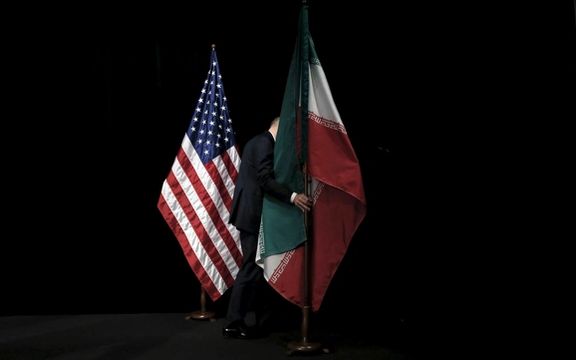
The former US Secretary of State, Mike Pompeo, has warned that the latest prisoner release deal with Iran, providing billions in ransom, sets a “dangerous precedent”.
Five US citizens unlawfully held in Iran have been released on the back of a deal which has freed up at least $6bn of funds from South Korea, but experts say the price is too high. “This will only encourage more hostage taking by the Iranian terrorists” Pompeo said.
During an interview with radio host John Catsimatidis, he spoke about the deal which will see billions of dollars sent to Qatar, which the US continues to assert will be used for the likes of humanitarian aid, in accordance with sanctions rules. "It's really dangerous," Pompeo said on "The Cats Roundtable" on 77 WABC.
"It's dangerous for the Gulf nations, it's dangerous for … Israel.” Pompeo said paying for the Americans' release will only help "build their [Iran's] economy" and encourage more hostage-taking … You now have a situation where we have told the Iranians, For every American you take, the Biden administration will provide you with $1bn," Pompeo told Catsimatidis.
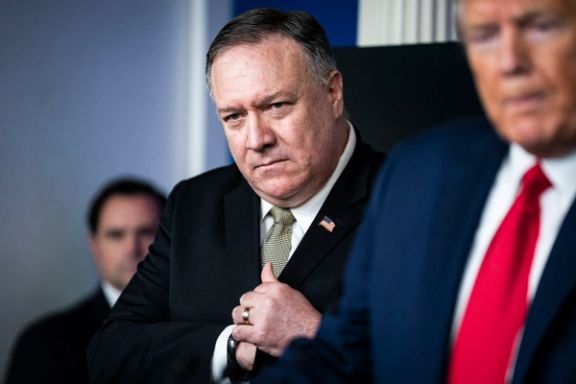
Richard Goldberg, a senior adviser at the Foundation for Defense of Democracies and former White House National Security Council director for countering Iranian weapons of mass destruction, echoed the fears.
“President Joe Biden’s decision to trade $6 billion for five American citizens unlawfully detained in Tehran isn’t just the largest hostage ransom payment in American history—it’s also the second phase of an unacknowledged agreement with Tehran that strengthens the ayatollah’s position in the Middle East and frees the regime to cross the nuclear weapons threshold at a time of its choosing. Americans need to brace themselves for the consequences of both realities,” he wrote this week.
He said that what would normally be a celebratory welcome home for the Americans is now overshadowed by the methods used to win their release and the implications of a foreign policy he says is “bent on appeasing the world’s leading state sponsor of terrorism”.
He raised the issue that the White House announced the latest deal during the August congressional recess, accusing Biden of skirting the legislation to protect any changes being made to the Iran Nuclear Agreement Review Act.
“Emergency hearings cannot be held. Resolutions of disapproval cannot be fast-tracked. President Biden has successfully evaded the Iran Nuclear Agreement Review Act, which requires him to notify Congress of any agreement with Iran related to its nuclear program before lifting sanctions.”
It is not the first time Iran has won in the hostage diplomacy stakes. In 2015, President Barack Obama agreed to pay Tehran $1.7bn for the release of four Americans as part of the broader negotiations over the first Iran nuclear deal.
Iran took more hostages in the months and years thereafter, believing it could get an even better price from a future US president. While the Trump administration turned to pressure instead of ransoms and won the release of two hostages without paying a dollar, under Biden, ransom payments have returned at multiple times the cost. While the Obama administration paid $425 million per American in 2015, the Biden administration has agreed to pay $1.2 billion. “History teaches us that Iran will only be emboldened by this swap, taking additional Americans hostage in the months and years to come,” Goldberg warned.
The Biden administration has lost the trust of many, both at home and abroad. Jason Brodsky, Policy Director at United Against A Nuclear Iran, said: “The amount of gaslighting coming out of the US government on #Iran policy is extraordinary: officials claim sanctions are being enforced when they're not; officials deny "nuclear agreements" when there appear to be "nuclear understandings;" officials initially hid Malley's clearance being suspended; the list goes on.”

This week, the Financial Times claims the latest deal is also aiming to pressure Iran to stop selling drones to Russia in its war on Ukraine, in addition to spare parts for unmanned aircraft. In what the newspaper claims is part of a broader “unwritten understanding” between Washington and Tehran to de-escalate tensions and contain a long-simmering nuclear crisis, it claims the Biden administration has raised the issue with the regime at indirect talks in Qatar and Oman this year.
However, the likelihood of this looks low, Iran and Russia deeply entrenched in military capacity building. In June, Iran International reported that the two sanctioned nations are busy building a drone manufacturing plant in Russia for use in Ukraine. The factory could build as many as 6,000 drones according to intelligence reports.
At the time, White House National Security Council spokesperson, John Kirby, said: “This is a full-scale defense partnership that is harmful to Ukraine, to Iran’s neighbors, and to the international community. We are continuing to use all the tools at our disposal to expose and disrupt these activities including by sharing this with the public — and we are prepared to do more.” The question is, at what price.
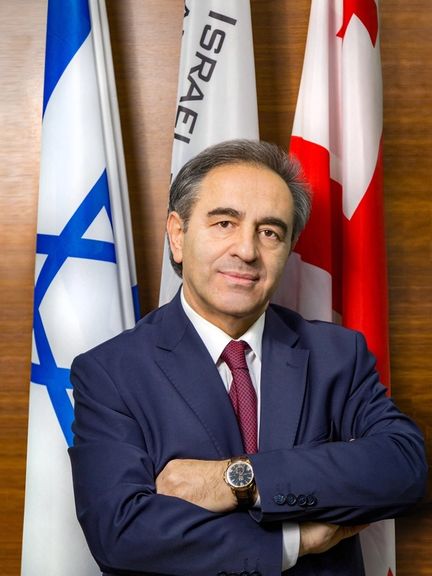
Itzik Moshe, a prominent advocate for improved ties between Israel and Georgia, has revealed that he survived three assassination attempts in the past year.
According to the Jerusalem Post, the attacks, orchestrated by Iran's Islamic Revolutionary Guard Corps, were aimed at thwarting Moshe's efforts to enhance relations between the two nations and elevate Israel's standing in the region.
"I see that their goal was not only to kill me physically but to kill the idea as well," Moshe stated, emphasizing the assailants' broader objectives.
Moshe, a Georgian Jew who immigrated to Israel in the 1970s and later returned to Georgia as the Jewish Agency's first representative to the Soviet Union, has been instrumental in bridging connections between Israel and former Soviet republics. His organization, Beit Israel (Israeli House), operates in 18 countries, facilitating cultural and diplomatic exchange.
The failed assassination attempts took place outside Beit Israel's office on Tbilisi's main street and were thwarted by intervention by Georgian security forces. Investigative findings indicated that the attackers intended to stage a gruesome spectacle at the entrance, by daubing Moshe's blood on the Israeli flag.
Despite the plots, Moshe remains dedicated to his mission. "The attempt of the murderers did not succeed," he said.
Geopolitical experts speculate that Iran views the South Caucasus, comprising Georgia, Armenia, and Azerbaijan, as strategically significant due to its proximity to the country. Iran is the sole Middle Eastern nation with diplomatic presence in all South Caucasus states. Iran's interests have drawn concern, as evidenced by its alleged involvement in attacks against Israeli targets.
Mossad recently disclosed additional information regarding a terrorist cell orchestrated by Iran with intentions to target Israeli businessmen in Cyprus.
Subsequently, Israel announced that its operatives within Iran effectively apprehended the individual believed to be responsible for the planned assault.
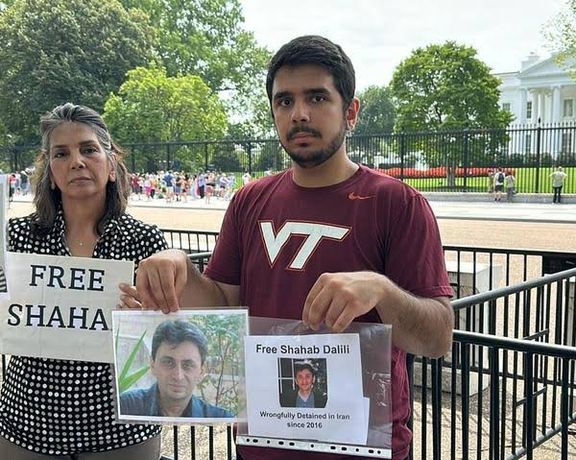
The family of a detained US permanent resident left out of a hostage release deal between Iran and the United States demand fair treatment.
On the fifth day of a sit-in protest that has moved from outside the White House to the US State Department's premises, the family of Shahab Dalili, is calling for his release as part of the Tehran-Washington agreement.
On Monday, Deputy Spokesperson Vedant Patel of the US State Department addressed the situation during a press conference, casting doubt on whether Dalili's case falls under the category of "wrongfully detained.”
Dalili, a former captain of Iran Shipping Company and a US resident, was arrested during a trip to Tehran in 2016 for his father's funeral, after which he was apprehended by Iranian security forces.
Patel said, “and what I would say in the case of Mr. Dalili is that that case has not yet been determined wrongfully detained. We obviously don’t discuss the specific details of individual cases who have not been deemed wrongfully detained.”
This contradicts previous remarks by US Secretary of State Anthony Blinken, who said on August 19ththat there were no other American citizens imprisoned in Iran apart from the five known detainees.
Shahab Dalili's son, Darin Dalili, expressed disappointment and disagreement with the Deputy Spokesperson's statement, deeming it "incorrect." In response to the family's concerns, Patel clarified that the US was actively investigating Dalili's case and had engaged in discussions with the family regarding his situation.
Undeterred by the conflicting messages, the family continue their sit-in outside the US State Department.
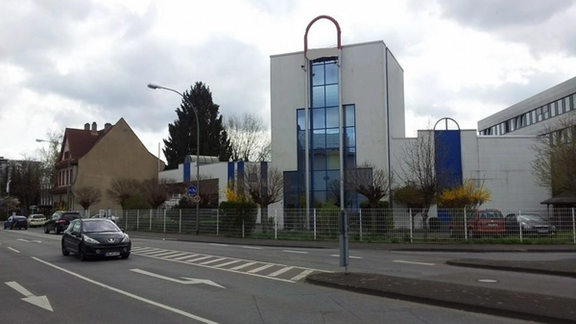
German Iranians are demanding the state government of Hesse shut down the pro-Iran regime Center for Islamic Culture in Frankfurt that honored Qasem Soleimani.
A Frankfurt Social Democrat Party politician Turgut Yüksel has shared information about the strong ties between the Center for Islamic Culture and Iran’s regime.
Iran International reviewed state of Hesse’s response to Yüksel’s “minor interpellation”—a formal written request by a member of the state parliament seeking concrete information about government conduct.
According to answers with respect to Yüksel’s request, the state’s ministry of interior and sport wrote, “The Center for Islamic Culture Frankfurt (ZIK) was influenced by the Islamic Center of Hamburg (IZH). The ZIK property was acquired by the IZH in 2012 and was still owned by the IZH in 2022. Until November 2020, the long-time head of the ZIK was also chairman of the Shiite umbrella organization ‘Islamic Community of Shiite Communities in Germany’ (IGS), which in turn sees the IZH as a reference organization for itself and its member associations.”
When asked by Yüksel “What options does the state government see for restricting the activities of the associations that support the Iranian regime,” state secretary, Stefan Sauer, for the interior ministry, wrote “should an examination show that the goals or activities of the associations run contrary to criminal law or against the constitutional order or international understanding, ban could be come into consideration.”
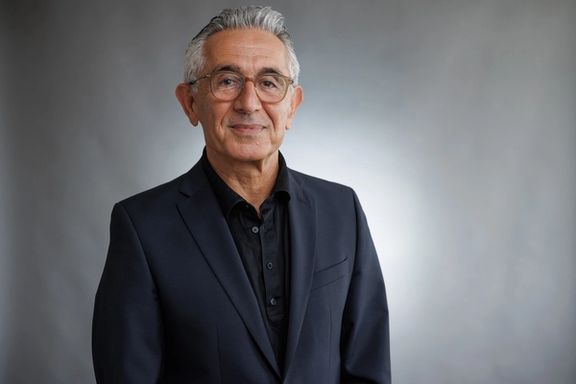
German governments in Hamburg and Hesse have showed great tolerance and leniency toward Iranian regime-controlled mosques and centers, according to critics.
The German daily paper Die Welt termed the Islamic Center of Hamburg “Iran’s long arm in Europe” and has reported it has “links to a terrorist organization, “including being controlled by Iran’s Supreme Leader Ali Khamenei.
The domestic intelligence agency for Hesse wrote, in 2021, “The extent to which the ZIK acted in accordance with Iranian state doctrine was shown, for example, by the fact that it -- like the IZH -- held a commemoration event in 2020 for Qasem Soleimani, the leader of the Iranian Revolutionary Guards who was killed by the American military."
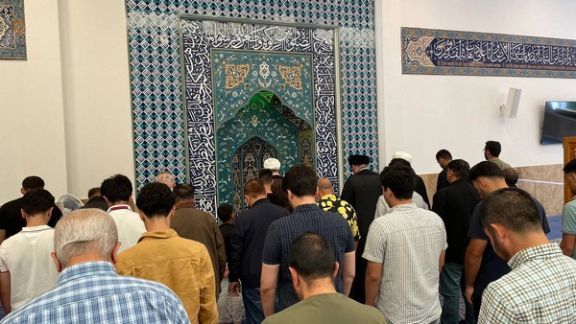
The intelligence report added, “Events with a positive connection to the Iranian regime were regularly held in the ZIK, especially on the anniversary of the death of Ayatollah Khomeini, the founder of the Islamic Republic of Iran."
The ZIK does not receive public funds, according to the Hesse government’s response.
Dr. Kazem Moussavi, a German-Iranian dissident who has campaigned for years against the ZIK, told Iran International, “The fact that the state of Hesse has not yet closed the ZIK is due to Germany’s policy of appeasement towards Iran. In 2018, federal president Frank-Walter Steinmeier received the former chairman of the IGS and the head of the Center for Islamic Culture in Frankfurt, Mahmoud Khalizadeh, at Bellevue Palace. This signaled the green light for the German-based institutions of the terror regime.”
Moussavi is the spokesman for the exiled Green Party of Iran in Germany.
Sheina Vojoudi, an Iranian refugee who lives in Germany, urged the state of Hesse to launch an intensive investigation of the ZIK. She told Iran International, “It almost impossible to consider an Islamic Center related to the Islamic Republic as non-political. The Islamic Republic mostly uses these centers as its source of money to lobby on a foreign soil like it does in the African countries recently.”
Vojoudi, who is an associate fellow for the Gold Institute for International Strategy, added “As an Iranian dissident deprived of my right to live in my own country, I would love to know every detail of the expenses related to all the Islamic Centers on German soil, which are funded by my country. Undoubtedly, this money needs to be spent for the Iranian children in Iran.”
Iran International press queries to the ZIK and to Marcus Gerngross, the spokesman for Hesse’s interior ministry, were not immediately returned.
Behrouz Asadi, the head of the Democratic Forum of Iranians in Mainz, sent Iran International a video of himself and Yüksel at a demonstration against a possible execution of Toomaj Salehi, a rapper opposed to the Islamic Republic, who has been incarcerated for his dissident activities.
Video footage from Asadi, a high-energy activist against the regime, showed protestors with pictures of Salehi and the political prisoner, Jamshid Sharmahd, who is a German citizen and was taken hostage by the clerical regime.
Asadi called for “release of all political prisoners in Iran” at one of the demonstrations and stressed the slogan “Women, Life, Freedom.”
Last week, Asadi participated at a protest in Frankfurt against the Islamic Republic following the shocking revelations that the German engineering giant Bosch sold 8,000 cameras to Iran that are used to conduct mass surveillance.
“If they sanctioned, how can you sell cameras to Iran regime?,” a demonstrator asked. “That is the most important question that people of Iran are asking.” The demonstrator showed a sign of European companies cutting deals with regimes that provide technology to repress and kill Iranians.
On X, formerly known as Twitter, there were social media posts calling for a boycott of Bosch.
When asked about whether Bosch violated its pledge to social responsibility, Dennis Christmann, a spokesman for Bosch, told Iran International “As a globally operating company, Bosch takes its social responsibility very seriously, and monitors international developments very closely. This is also the case in Iran. Respect for liberty and human rights is our most important priority. Diversity, openness, trust, and freedom of speech are core elements of our values-based corporate culture.”
Critics argue Bosch failed to do its due diligence about cutting a massive business deal with a totalitarian regime that has previously used tracking technology to imprison Iranian protesters and dissidents.
Bosch’s headquarters is in Stuttgart in the wealthy southwestern state of Baden-Württemberg. German politicians and officials in the state of Baden-Württemberg, from the governor Winfried Kretschmann to the allegedly antisemitic civil servant Michael Blume to the mayor of Freiburg, Martin Horn, go to great lengths to promote relations with Iran’s regime and ignore Iranian dissidents and grave human rights violations in Iran, according to critics.
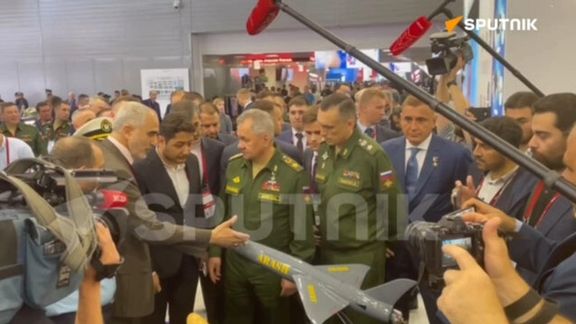
Russian Defense Minister Army General Sergey Shoigu visited the military stands of several countries, including Iran’s at the Army-2023 International Military-Technical Forum
The ongoing Army-2023 International Military-Technical Forum held at the Patriot Congress and Exhibition Center outside Moscow, the Alabino shooting range, and the Kubinka airfield, gathers military enterprises to discuss development within the Russian Armed Forces.
At the Iranian stand, Shoigu showed particular interest in a range of unmanned aerial vehicles (UAVs) and electronic warfare systems. Among the showcased items were the Arash, Ababil-5, and Karrar UAVs, alongside the Hunter-2 electronic warfare system.
Iran’s delegation, led by Deputy Chief of Staff of Iran's Armed Forces, Aziz Nasirzadeh, has been a consistent presence at such events.
Iran has previously denied allegations of sending armed drones to Russia during the conflict that ensued after Moscow's invasion of Ukraine. The Iranian government stated that any such shipments, if they did occur, took place before the war.
Nevertheless, Russia's utilization of Iranian-made drones for attacks on Ukrainian infrastructure and civilian targets has drawn international criticism. Western powers have raised concerns over Iran's involvement in arming Russia with these drones, along with the possibility of supplying additional weaponry and ammunition.